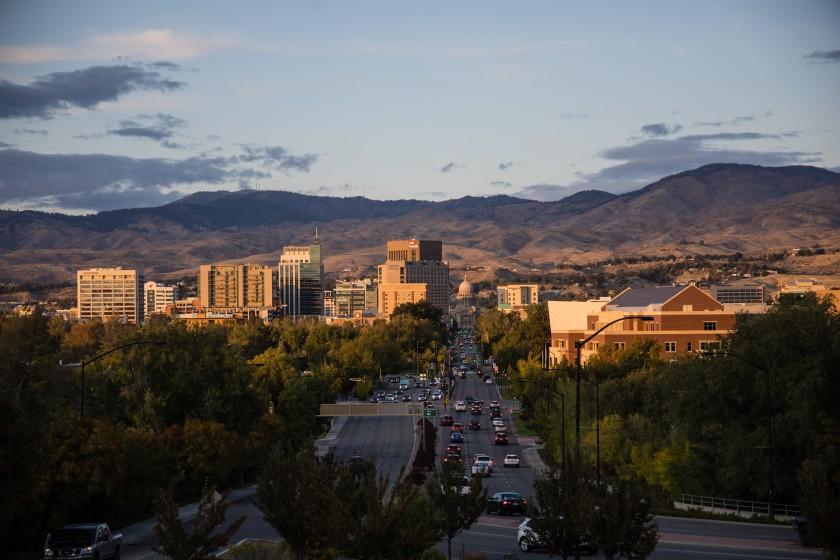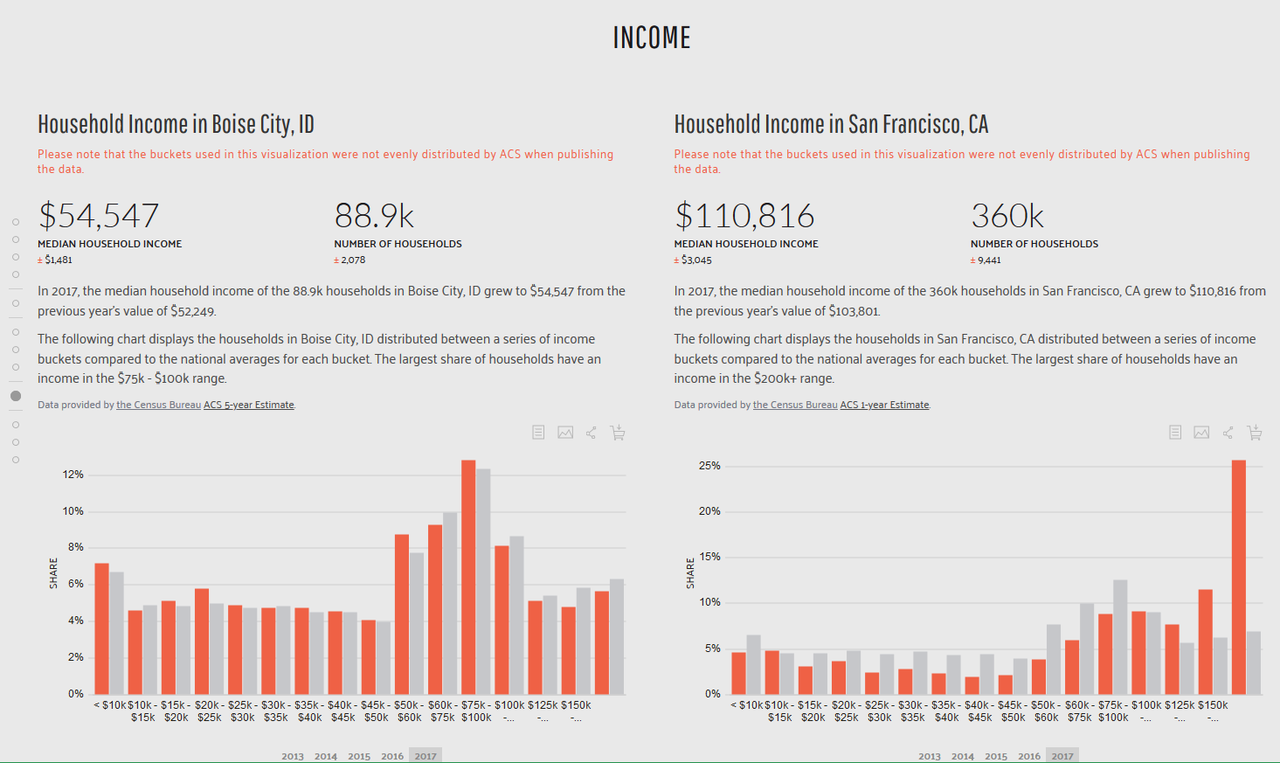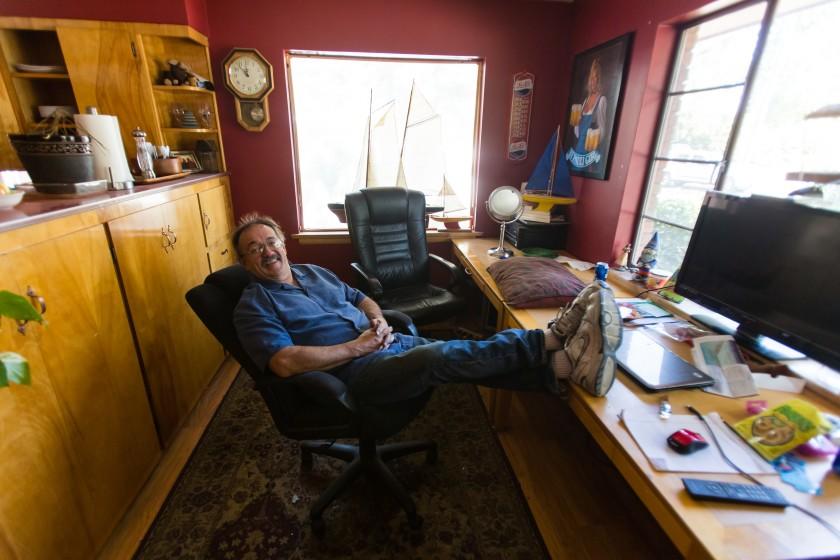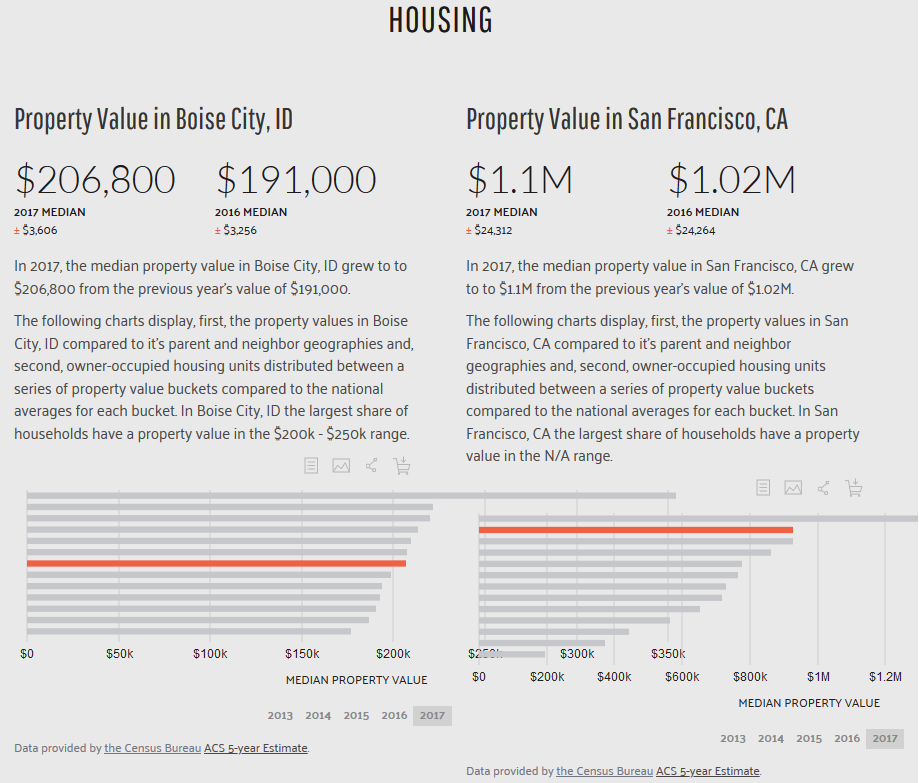As we have documented for years, Californians have been fleeing the Golden State in droves thanks to untenable costs of living which include exorbitant taxes levied by inept bureaucrats. The annual fires, poo-covered streets, and devastating earthquakes are icing on the cake.
And as we've also documented, states experiencing the largest influx of 'enlightened' Californians include Arizona, Nevada, Texas, Oregon, Washington and Idaho. According to a January report from the Idaho Department of Labor, the land of potatoes is tied with Nevada as the fastest growing state in the nation.

Unfortunately for longtime residents of greener (cheaper) pastures such as Boise, transplants are starting to ruin things - driving up home prices and rents while median household income remains below the US average.

The income inequality between natives and transplants has caused so much animosity in Idaho that it underpinned Boise mayoral candidate Wayne Richey's entire platform: Stop the California Invasion.

(Otto Kitsinger / For The Times)
Such inequity was what fueled Richey’s quixotic campaign; he came in fifth with 2% of the vote. The 59-year-old auto body technician runs yard sales on weekends and drives for Lyft on Friday and Saturday nights, when “I take drunk people home.”His sister had her own business until the Great Recession, when she lost everything and moved in with him. She just bought a house one city over, the only one she could find for about $230,000, and, he said, it’s a piece of you know what. She works in a call center, rents out a room and works craft shows.“It’s really, really hard to swallow,” he said, “when somebody sells their house in California for $700,000, comes here, buys any house they want in cash and still has money in the bank.“Their kids get to go to college,” he continued. “They drive nice cars. And they get to enjoy everything we built over the years. We don’t get to enjoy it, because we’re working 40 hours a week and doing craft shows and doing yard sales.” -LA Times
The median home price in Ada Couty, where Boise is located, has risen 19.3% since February 2018 according to the Idaho Statesman, and now sits at $349, 994. Vacancy rates for the lowest-income residents, meanwhile is just 0.45% according to HousingIdaho.com.
And according to the Times, Boise needs 1,000 new housing units per year for the next decade - according to officials in the city of 228,000, which is "just not happening."
What should Californians and other transplants do?
Blend in - remove those California license plates. Don't flash your money. And don't do things like 'promoting inclusion' by demanding drag queen story hour at the local library.
As the Times notes, "California bashing is a cyclical sport with a long history in the heart of Idaho’s Treasure Valley."
In late September, former Boise State University kicker Taylor Rausa found a professionally printed card on his car, which read:
GO BACK TO CALIFORNIAWE DON'T WANT YOU HERE
"One bit of advice Rausa got during the online fracas was that he should change those California plates — and fast. That’s been a longtime refrain from friendly Boiseans to their newest neighbors," according to the report.
"If you come here and love it, everything’s fine," said 2002 California transplant Rev. Bill Roscoe. "If you come here and fly that California flag in your driveway and have stickers on your car that say, ‘Santa Cruz,’ there’s going to be some hard feelings."
Roscoe, the CEO of Boise Rescue Mission Ministries, keeps a sign on his desk that says "I am not from Idaho but I got here as fast as I could."
Some Californians have tried to integrate, only to be given the cold shoulder anyway.
Patricia Flanigan also swapped her California plates for the red-white-and-blue “Famous Potatoes” version when she moved from Dana Point in 2015 to the Boise suburb of Eagle. She had retired as dean of online education and learning resources at Saddleback College.“I took the position that I would come to Idaho and adapt to the community,” she said. She has a doctorate in education. Earlier in her career, she’d taught English as a Second Language at three Southern California community colleges. She’d also run an ESL program at Lake Tahoe Community College. When she moved, she decided to volunteer with non-English speakers.She got an appointment with the director of a nearby community college. But the school wasn’t interested in her offer of free help. She was told to try the region’s refugee center. She sent a resume. And never heard back.At the college interview, “I was dressed professionally, looked like a Californian,” Flanigan said. “I probably irritated [the director] by my confidence. There was no way she was going to have me volunteer.... She wanted to get rid of me.”That professional cold shoulder was her introduction to Idaho, the 66-year-old said. Since then, she has founded a website called “Smart Strategies for Successful Living.” She has a circle of friends and a house that she loves and owns outright. She has not looked back.“I’m not here to be a Californian,” she said. “I’m here to be a community member and contribute.” -LA Times
According to the most recent Treasure Valley Survey conducted by the Idaho Policy Institute at Boise State University in 2018, over 70% of those asked said the region is growing too fast, vs. 50% who said the same in 2016.
"Over the course of two years,residents of the Treasure Valley have gone from being divided about whether the pace of growth was too fast or about right, to adopting the belief that it is too fast by a large margin," the survey reports.
During a September town hall meeting held at a strip mall library, resident Yvette Zoe - who moved to Boise in 1972, said "I know that you can’t stop growth, but what are we going to do about our quality of life here?"
"My kids, they can’t buy a house because they can’t afford it right now, and they work. My grandkids, their schools are crowded."
Newcomers are moving here for a better quality of life, but “the very thing they’re leaving in — we know where — Seattle, California, Austin,” they’re bringing to Boise, she said. “What I’d like to see is what can we do for the people that already live here that have been here for a long time.”
One solution proposed by mayoral candidate Wayne Richey is to tax newcomers more than longtime residents - which he dubbed Proposition Zero One Two Three. It would result in sixty-year residents paying no property taxes - while new residents would instead shoulder the burden.
"This gives much needed relief to longtime residents and forces new people to pay their share," said Richey on his Facebook page. "Maybe it just might make them think twice about moving here."



No comments:
Post a Comment